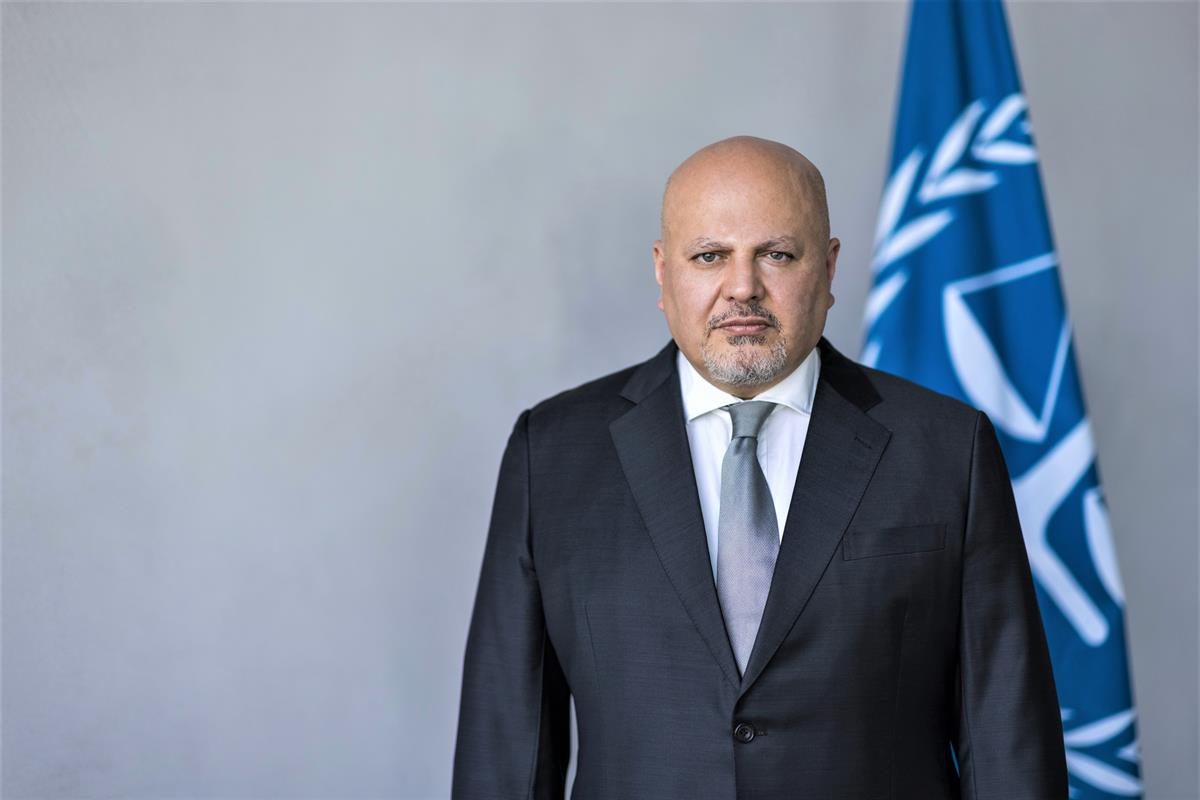SUMMARY
This is AI generated summarization, which may have errors. For context, always refer to the full article.

MANILA, Philippines – In the latest development in the International Criminal Court’s (ICC) investigation into drug war killings in the Philippines, ICC Prosecutor Karim Khan asked the appeals chamber to reject the Philippine government’s appeal opposing the ongoing probe.
“For all the reasons set out above, the Prosecution respectfully requests the Appeals Chamber to reject the Appeal and confirm the Pre-Trial Chamber’s authorization of the resumption of the Prosecution’s investigation in the Situation in the Philippines pursuant to article 18(2) of the Statute,” Khan said in his 59-page response to the Philippine government’s appeal brief.
In January this year, the ICC had moved to resume the probe. Shortly after, the Philippines, through the Office of the Solicitor General (OSG), notified the ICC that it would appeal the court’s decision to allow the resumption of the investigation. The Philippine government, headed by President Ferdinand Marcos Jr., an ally of former president Rodrigo Duterte, also asked the ICC to suspend the probe.
In response, Khan also submitted his position to the appeals chamber and sought the rejection of the Philippine government’s demand to suspend investigations. On March 15, the Philippines sent its appeal brief to the chamber, which contained its detailed arguments.
In a decision dated March 27, the ICC rejected the bid of the Philippine government to suspend the ongoing investigation. Meanwhile, the Philippines’ actual appeal opposing the probe remains pending before the international court.
The ICC probe is centered on Duterte’s drug war, including the alleged killings in relation to the Davao Death Squad. Government data showed that as of May 2022, at least 6,252 individuals were killed in police anti-illegal drug operations.
But for human rights groups, estimates run between 27,000 and 30,000 if vigilante-style killings are included.
Khan’s arguments
In his comment, Khan said the Philippines failed to prove any error in the ICC’s decision to resume the probe, and identify any error that affects the said decision.
On the question of jurisdiction, Khan reiterated that the ICC has jurisdiction over the Philippines under Rome statute because the alleged crimes in question were committed from November 1, 2011 to March 16, 2019. Meanwhile, the Philippines’ withdrawal in the ICC only took effect on March 17, 2019.
The ICC prosecutor also agreed with the pre-trial chamber’s finding that the Philippines indeed had the burden of proof with regard to the request to defer the probe. In denying the Philippine request to suspend the probe, Khan also agreed with the chamber’s conclusion that the Philippine probe did not mirror the desired investigation of the ICC.
Khan also laid down specific arguments as to why the ICC appeals chamber should deny the Philippine appeal. Again, on jurisdiction, Khan said the appeals chamber should reject the question against the said ground.
“The Chamber correctly recalled that the Court has jurisdiction ‘in accordance with the provisions of the Statute, an international treaty to which the Philippines was a party at the time of the alleged crimes for which the investigation was authorized.’ This interpretation accords with the Statute and the Court’s jurisprudence,” Khan said.
In terms of the cooperation with the ICC, the Philippines argued “that the Court can only enforce cooperation with respect to investigations.” But according to Khan, the Philippines misinterpreted the decision because cooperation from a state “is not a jurisdictional precondition that must be met for the Court to exercise its jurisdiction under the Statute.”
Khan also noted that the Philippines failed to identify any part of the decision that supported the country’s claim that the appeals chamber required to show that trials had actually occurred or were imminent. The ICC prosecutor added that the Philippines failed to prove that the appeals chamber was either incorrect or unreasonable in analyzing specific issues.
In addition, Khan said the appeals chamber did not err in assessing the following information submitted before the court:
- Lists of cases concerning the National Bureau of Investigation (NBI) and NPS (National Prosecution Service)
- NBI investigative materials;
- Information concerning PNP-IAS (Philippine National Police Internal Affairs Service) disciplinary proceedings
- Investigation does not presently extend to any high-ranking official
- Investigation does not presently extend to alleged killings by private individuals outside police operations
- Investigation does not presently extend to alleged killings in Davao
- Investigation did not represent the range and scope of crimes in the Court’s investigation
– Rappler.com
Add a comment
How does this make you feel?


![[The Slingshot] Lito Patay’s 4 hours and 38 minutes of infamy](https://www.rappler.com/tachyon/2024/07/Lito-Patay-4-hours-infamy-July-19-2024.jpg?resize=257%2C257&crop=233px%2C0px%2C720px%2C720px)

![[The Slingshot] A Duterte and Bato cop named Patay](https://www.rappler.com/tachyon/2024/06/tl-lito-patay.jpg?resize=257%2C257&crop=322px%2C0px%2C720px%2C720px)






There are no comments yet. Add your comment to start the conversation.